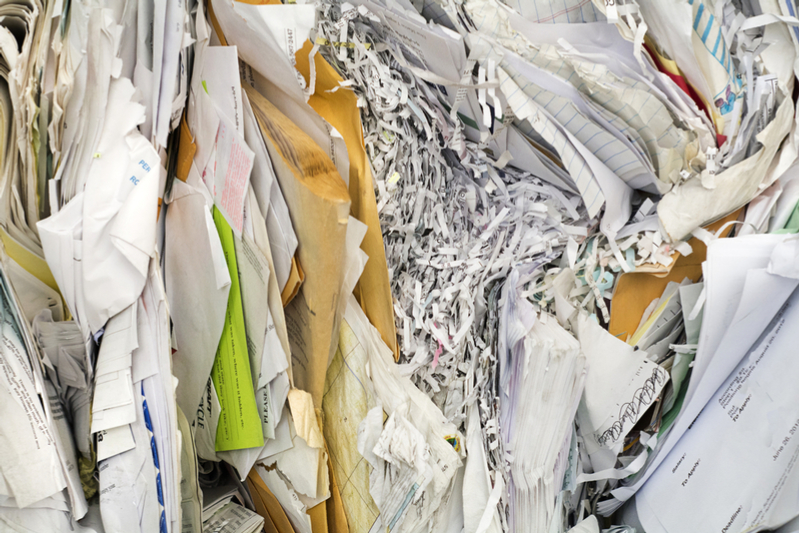Business Feeling The Pinch? Make Savings With Waste-Saving

Running a business comes with its fair share of challenges. The last few years have been difficult for businesses, with recent events having a significant impact on the economy. With rising operational costs and financial uncertainty, many companies are looking at innovative ways to stay afloat. One often overlooked solution is improving waste management. By focusing on waste-saving, your business can cut expenses, reduce its environmental impact, and even generate new revenue streams.
If your business is feeling the pinch, then take a look at
these waste-saving ideas that could also save you money.
Business costs to consider in 2025
This year, businesses are facing a perfect storm of increased costs. While the economy has seen some improvement in the last year, a change of government and other factors means some uncertainty still exist. Notable expenses to keep in mind include:
Energy price hikes
With fluctuating global markets and energy supply concerns, electricity and gas bills have continued to increase. The Energy Price Cap from 1 April to 30 June
has increased , putting strain on businesses. Companies that rely heavily on energy for production or day-to-day operations are especially vulnerable, but other businessowners will also be affected.
Increased National Insurance (NI) payments
Recent changes to National Insurance thresholds mean businesses must budget for
higher NI contributions , affecting employers, as
Inflation and supply chain issues
Rising prices for raw materials, transport, and everyday supplies continue to squeeze profit margins, making things tight for businesses.
Rising rent and property costs
As commercial property demand increases, businesses leasing office or retail spaces may face significant rent hikes.
With these challenges in mind, finding ways to offset costs is essential. One simple and sustainable solution is through better waste-saving practices.
How waste-saving could save you money
Effective waste management isn’t just good for the environment—it’s good for your bottom line. Here’s how waste-saving can lead to financial benefits:
Sell recyclable materials
Many businesses throw away valuable materials like cardboard, plastic, and metal. Some recycling companies will pay for these items, turning waste into a revenue source. For example, if your business regularly disposes of large volumes of cardboard, partnering with a recycling service could bring in extra income.
Learn more about making money from selling cardboard waste.
Reduce waste disposal fees
Waste collection and landfill costs can be substantial. By producing less waste, you can reduce the frequency of collections or switch to a cheaper waste management plan. Using a
waste baler is an excellent way to do this. A waste baler will help you compact your waste into smaller, more manageable bales, helping to save space and money.
Cut packaging costs
Streamlining packaging processes can reduce material costs and shipping expenses, especially for e-commerce and retail businesses. Using recyclable materials can also help you reduce your environmental impact, ensuring less waste ends up in landfill.
Lower energy consumption
Implementing energy-efficient waste processes, like compacting materials, can reduce operational costs and make your waste much easier to manage.
Offset your increasing costs by reducing your waste management costs
With business costs on the rise, reducing your waste management expenses is a practical step toward financial stability. Here are some of the things you can do to make further savings on your waste management costs.
Audit your waste
Understanding what you’re throwing away is the first step. Conduct a waste audit to identify which materials are most discarded and explore different options for managing them. phs Wastekit offers a
free waste audit to help you take a closer look at the way your business manages waste.
Negotiate with waste management providers
Many businesses stick with the same waste collection service for years. Shopping around or renegotiating your contract could save you money.
Invest in on-site recycling equipment
While there may be an initial cost, equipment like balers and compactors can significantly reduce the volume of waste, lowering collection fees over time.
Work with local recycling centres
Local centres may offer better rates or even free collection for certain materials, such as paper, metals, or plastics – especially if you’re a small business.
Tips for better waste management to save your business money
Implementing small changes to your waste management can lead to significant savings, helping to offset increasing costs in other areas. Some top money-saving tips for your business include:
Train your team
Educate staff on proper recycling procedures to ensure materials are sorted correctly, maximising recycling potential.
Go paperless
Switch to digital documents where possible to reduce paper waste.
Review supplier packaging
Work with suppliers who use recyclable or minimal packaging to cut down on waste.
Reuse materials
Reuse packaging materials for shipping or internal purposes to avoid unnecessary purchases.
Monitor waste regularly
Set waste reduction targets and track progress to keep waste-saving efforts on course.
Waste-saving made easier with phs Wastekit
If you’re interested in saving your business money through better waste management, phs Wastekit can help. Not only can we provide you with a free waste-saving audit , but we can also supply your business with balers
and compactors that will make it easier to manage your waste, and help you save money too.
Contact
phs Wastekit today to see how we can help you save money and adopt more sustainable waste management practices.